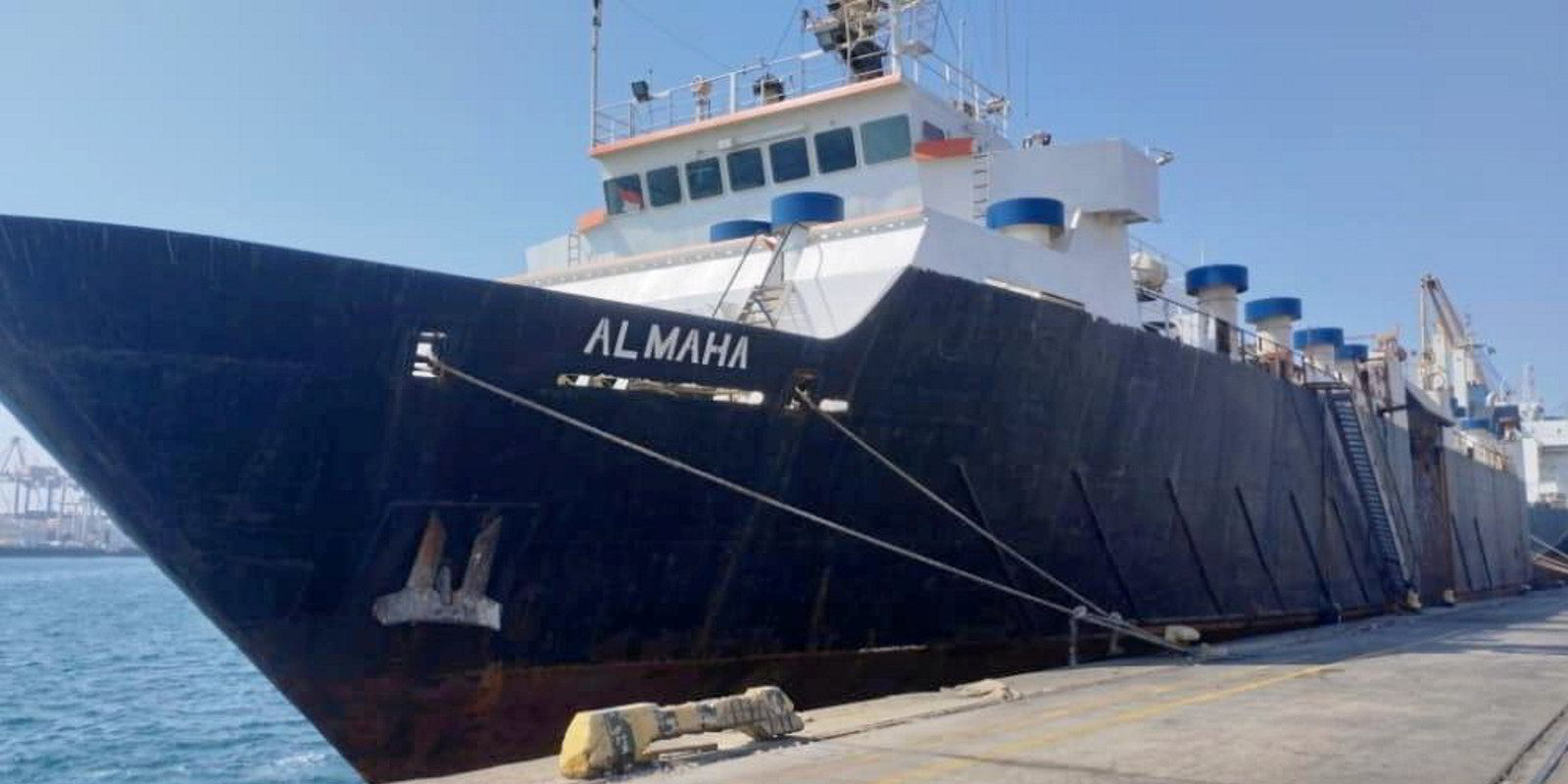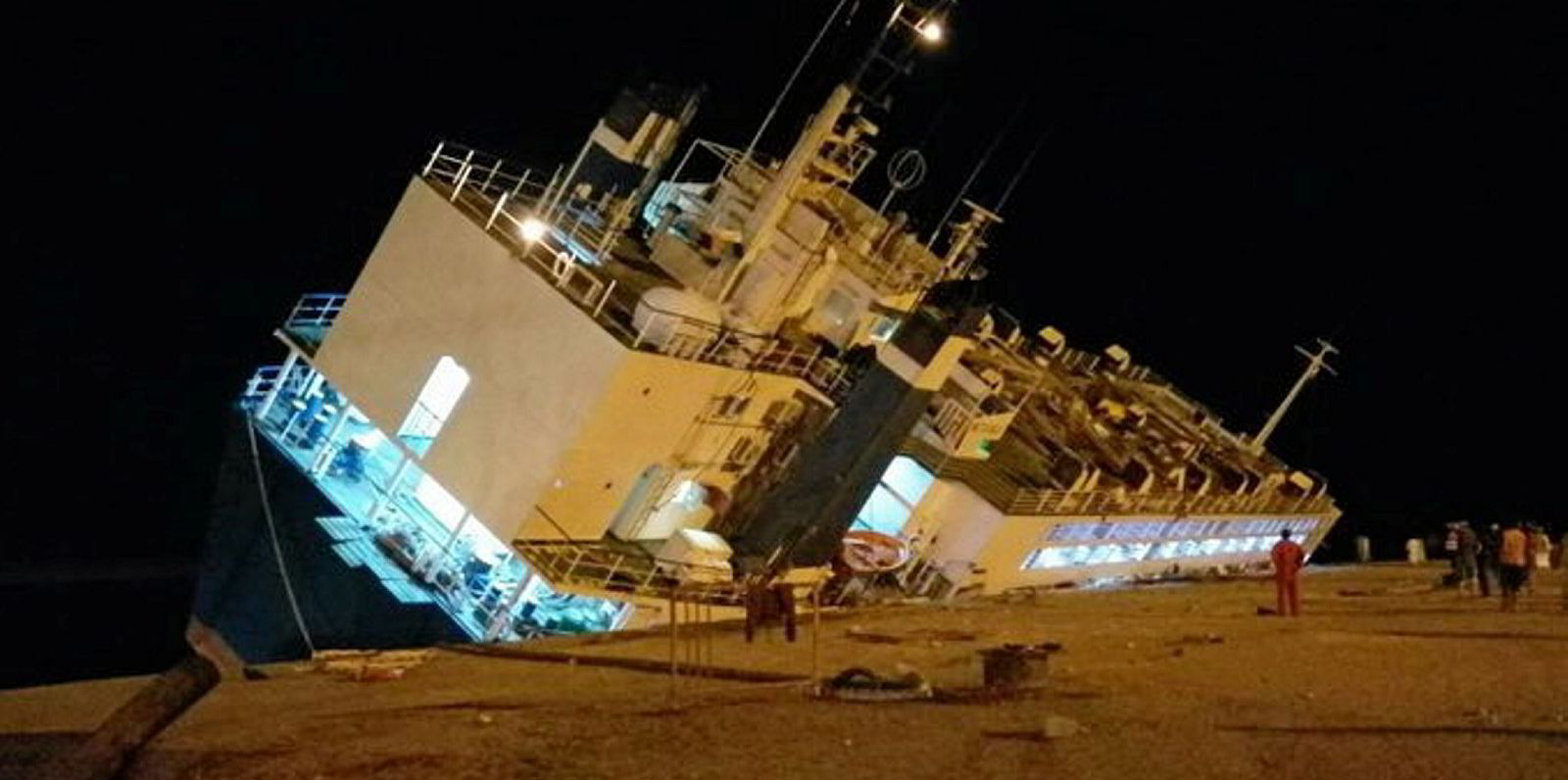The chief engineer on a livestock carrier has hardly left his ship in a decade or been paid a salary in nearly seven years.
Union officials are pursuing wages and repatriation for chief engineer Abdul Naser Saleh and fellow crewmen, but they claim the Tanzanian flag state is not responding to their urgent messages.
Saleh, a Syrian national, took a job on the 1,600-dwt Jeddah Palace I (then Al Maha, built 1979) on 20 September 2012, according to the International Transport Workers’ Federation (ITF).
“Ten years later, he’s still stuck on board, currently at the port of Jeddah,” said ITF officials in a message. “He has been tricked and cajoled by the owners into remaining at his post while other crew members have come and gone, while most of the others have received their rightful pay.”
The Jeddah Palace I is currently owned by Abalkhail Marine Navigation and operates out of Jeddah. AIS records show it operating in a shuttle route between Saudi Arabia and Egypt. The ship has traded both as a livestock carrier, a ro-ro, and a passengership.
Saleh has family in both Egypt and Sudan and has in past years been able to disembark and see some of his children during a long detention in Sudan. But he has not visited his family in Egypt since 2012, according to the seafarers’ union.
“He has been treated as a slave,” said Mohamed Arrachedi, the ITF’s Arab World and Iran network coordinator.
“I have asked for my pay but received only threats,” Saleh told Arrachedi, according to the ITF. “The original owner died and when his son took over, he agreed to pay me the sum of $140,000 in back wages. He even signed a document. But the pay never arrived.”
The ITF said some Sudanese crew have recently left the ship and been paid off. Other Sudanese former crewmen are taking legal action. But nine other Syrian seafarers joined the ship on 24 July of this year, and none of them have been paid despite ITF efforts.
The ITF is scathing in its criticism of Tanzania’s Zanzibar open registry for enabling extreme seafarer abuse.
More broadly, it blames the lawless and shipowner-funded flag of convenience system in general.
“At the grubbier end of the shipping industry, it’s like the police are being paid by the criminals,” said ITF inspectorate coordinator Steve Trowsdale.
“What we see is shipowners who want to evade their responsibilities, selecting flag states they know will take little or no interest in enforcing standards,” he said. “Abdul Naser Saleh’s story is an extreme example but, unfortunately, cases like his are all too common.”
The union is pursuing the matter with Saudi officials as well as with the owner but reserves special criticism for the flag state.
“As in this case, it is ITF’s experience that the Tanzanian flag does not take action when it receives requests relating to seafarer welfare,” said Trowsdale. “Our view is that a country should not operate an open registry unless it has the capacity to enforce basic labour rules on the ships it registers.”
TradeWinds has contacted the Zanzibar Maritime Authority (ZMA) for comment.
This story has been updated to reflect that chief engineer Abdul Naser Saleh has had short periods of shore leave in Sudan.







